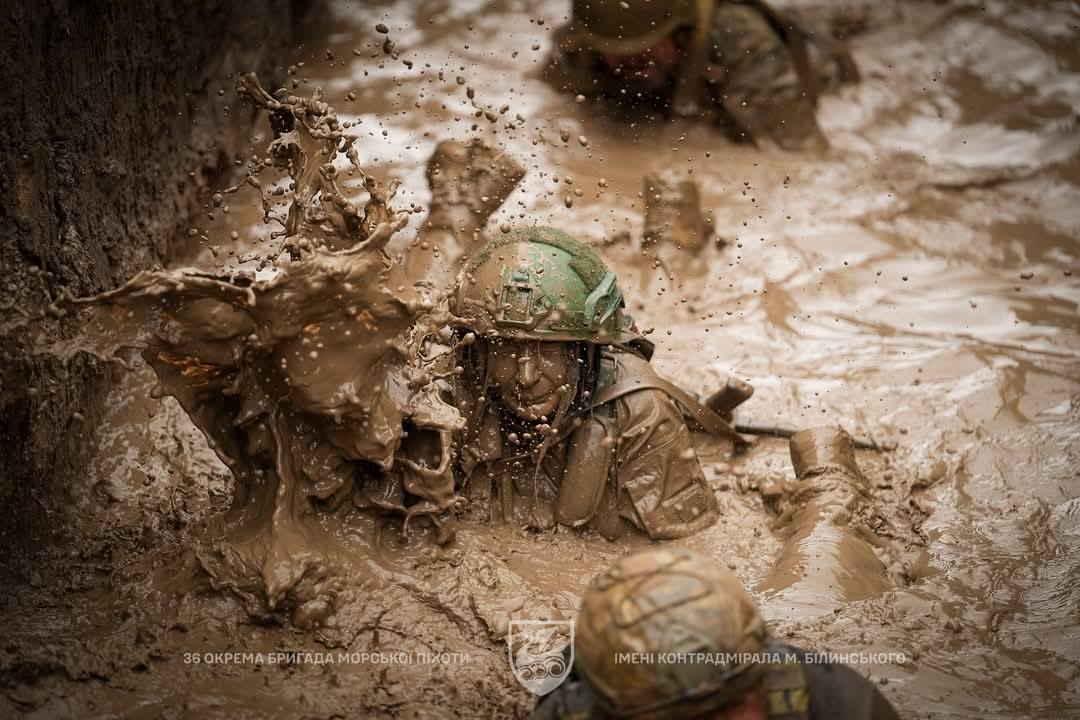This past weekend, I took part in the Ditchley Foundation Conference in the United Kingdom — a closed-door gathering that brought together senior representatives of governments, international organizations, media, and civil society from the EU, the United States, and NATO.
The conference was held at Ditchley Park, a historic English estate in Oxfordshire. During World War II, Winston Churchill frequently stayed there. The estate served as a secure location for strategic planning during air raids on London. At Ditchley, Churchill conducted informal consultations with allies, where they discussed crucial defense and diplomatic decisions — some of which would shape the course of history. Today, this place has once again become a space for serious strategic conversation.
Why no one at Ditchley believes in a ceasefire
Unlike the tone of public discourse, no optimistic statements about a “ceasefire” or “peace on the horizon” were heard in Ditchley. On the contrary — among professionals in the field of security, not a single participant believed that Putin would voluntarily agree to a just peace. The rhetoric was completely different: How long will Russia hold out, and how long can Ukraine?

As for Washington, there was little belief that President Donald Trump — once he fully realizes Putin’s refusal to compromise — will take truly decisive steps, such as imposing new sanctions or providing massive military aid to Ukraine. There were low expectations for a strong future response from the US administration.
Participants acknowledged a core reality: no European “coalition of the willing” to support Ukraine with ground troops will be viable without a green light from Washington, especially when it comes to nuclear deterrence and air defense. The US remains the only actor capable of strategic backstopping.
Tech vs. mass: Ukraine’s bet against Russia’s numbers
Across Europe, there is growing discussion about the future of warfare — one dominated by autonomous systems, not human soldiers. Demographically and culturally, Europe lacks the population ready to be mobilized and accept high battlefield casualties.
But today's battlefield is far from futuristic. Russia continues its slow advance, gaining meters of territory at the cost of thousands of lives. Its strength lies in mass. Ukraine, by contrast, must rely on quality — a more professional, better-trained army, supported by cutting-edge technology.
Ukraine has entered a new phase of war, where the speed of innovation is as important as manpower or equipment. More than 700 Ukrainian companies are actively working on drones, AI, and autonomous systems. Ukraine’s innovation cycle — from idea to battlefield deployment — is among the fastest in the world.
Innovation isn’t enough — Ukraine is still losing ground
Yet this edge in innovation is not enough.
Russia attacks Ukrainian cities daily with drones and missiles. It coordinates combined strikes while Ukraine remains largely on the defensive. Territory is not being liberated — it is being lost.
This stark reality means Ukraine is not winning. To reverse this, Ukraine must achieve superiority — technological, institutional, and at scale. There is no guarantee Russia will exhaust its resources in one or two years. On the contrary — Kyiv must prepare for the worst-case scenario, in which the Russian economy has nearly bottomless reserves.
Technological dominance must become a national priority — especially in unmanned systems, robotics, AI, cybersecurity, and data integration. The future of war is already here, and it will be fought without tanks, captains, or pilots.
Europe and the UK step up military support
In this context, developments in London are notable. On 19 May, the UK hosted the EU–UK Security Summit. European Commission President Ursula von der Leyen announced a new stage of collaboration, including joint procurement of weapons for Ukraine and direct investment in Ukraine’s defense industry.
If implemented, this could mark a positive change. Ukraine would not only receive more arms but also gain the opportunity to build lasting, sustainable defense capabilities. Joint production would also enhance interoperability with European militaries and help close critical capability gaps.
Notably, President von der Leyen raised the possibility of Britain participating in SAFE — a proposed €150 billion European defense investment program. This fund would enable joint procurement and support large-scale defense industrial cooperation across the continent.
Britain repositions as a defense power post-Brexit
Post-Brexit Britain is actively searching for renewed relevance in European security — and the defense industry appears to be the chosen avenue.
Many in the UK now privately express regret over Brexit. The economic benefits have failed to materialize, and immigration has risen, ironically defying one of the key promises of the Leave campaign. The only remaining geopolitical "benefit" — as some see it — is the possibility that Trump administration — skeptical of the EU — might offer Britain more favorable trade or defense deals.
Still, Britain shows no intention of excluding itself from European security matters. It remains a critical NATO member and it is cautious about EU defense initiatives that might compete with or duplicate NATO’s role. Even though all agree that without the US NATO would become obsolete, building up an alternative project is not on agenda. NATO has strong military planning and operational capabilities, but lacks financial tools and political legitimacy.
The EU, on the other hand, has funding mechanisms and a political decision-making structure, but lacks joint military command capacity. As the EU is working to reinvent itself as a defense union, the UK remains actively involved in European security, despite no longer being an EU member.
Ukraine’s road to self-reliance in defense
The main takeaway from Ditchley is clear: Ukraine must increase the share of domestically produced arms from the current 40% to as close to 100% as possible.
Only such a shift will convince Moscow that Ukraine — and its partners — cannot be outlasted. Only then will Russia face true pressure to stop the war.
As long as Moscow believes Western support will fade and Ukraine alone won’t last, it will continue to fight.
To solve Europe’s broader security dilemma, Ukraine must be seen not as a burden, but as part of the solution. Only then will the West commit the full scale of resources needed to secure Ukraine’s future — and Europe’s.
Editor's note. The opinions expressed in our Opinion section belong to their authors. Euromaidan Press' editorial team may or may not share them.
Submit an opinion to Euromaidan Press

